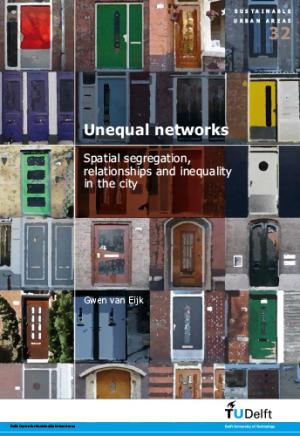Hosted by
Unequal Networks: Spatial Segregation, Relationships and Inequality in the City
Synopsis
Does the neighbourhood in which people live matter for the resourcefulness of their personal network and thus for their opportunities in life? Do residents of a multi-ethnic ‘problem’ area maintain fewer relationships with fellow residents compared to residents of a homogeneous problem-free neighbourhood? And do ‘diversity-seekers’ who choose to live in a mixed neighbourhood translate their liking for diversity into more mixed networks and more bridging ties? This book brings together key insights from urban studies and network studies in order to understand whether and how spatial segregation matters for personal networks and inequality. By approaching these questions through different urban sociological perspectives, the book engages with current debates on poverty concentration as well as ethnic diversity, gentrification and social capital. The study is based on detailed quantitative and qualitative data on the personal networks of people living in three differently composed neighbourhoods in Rotterdam, the second largest city in the Netherlands.

